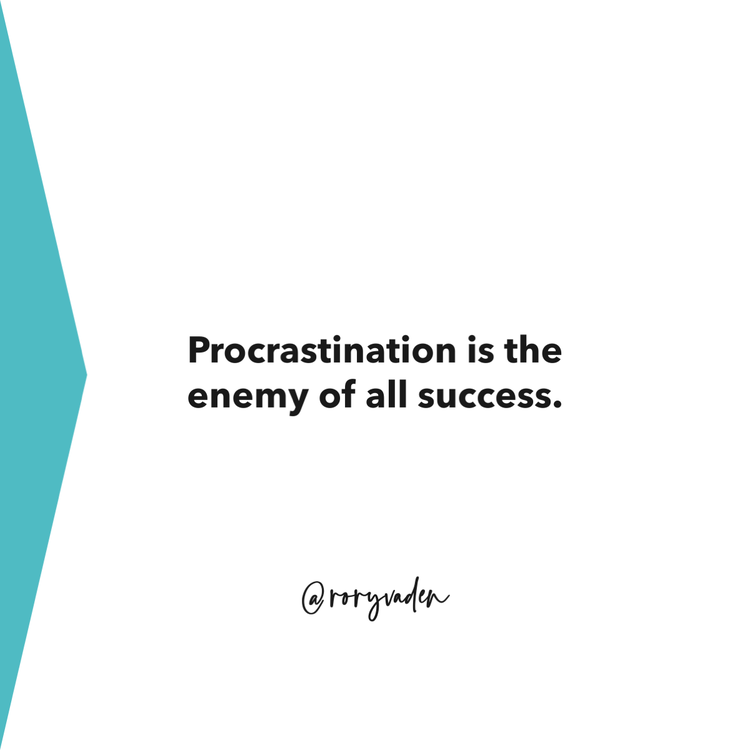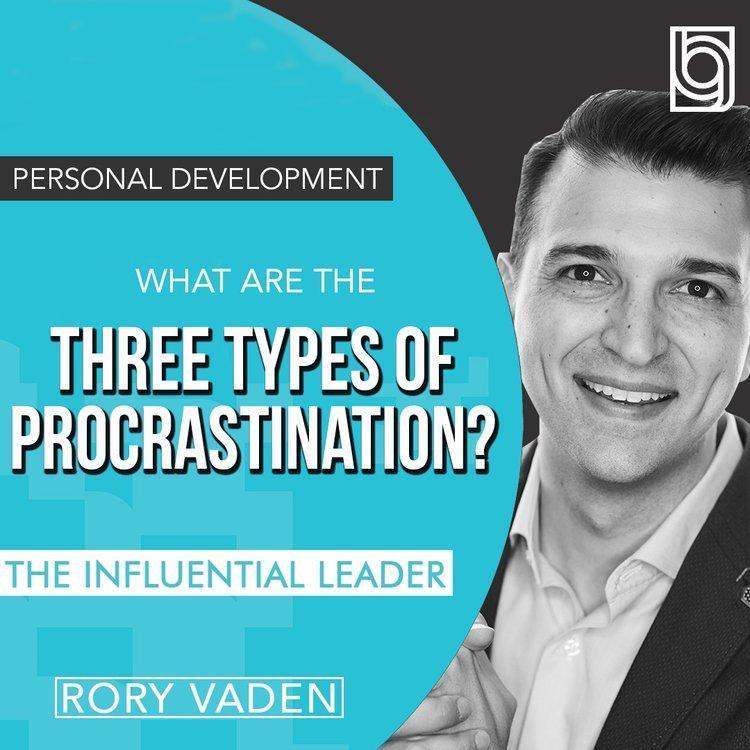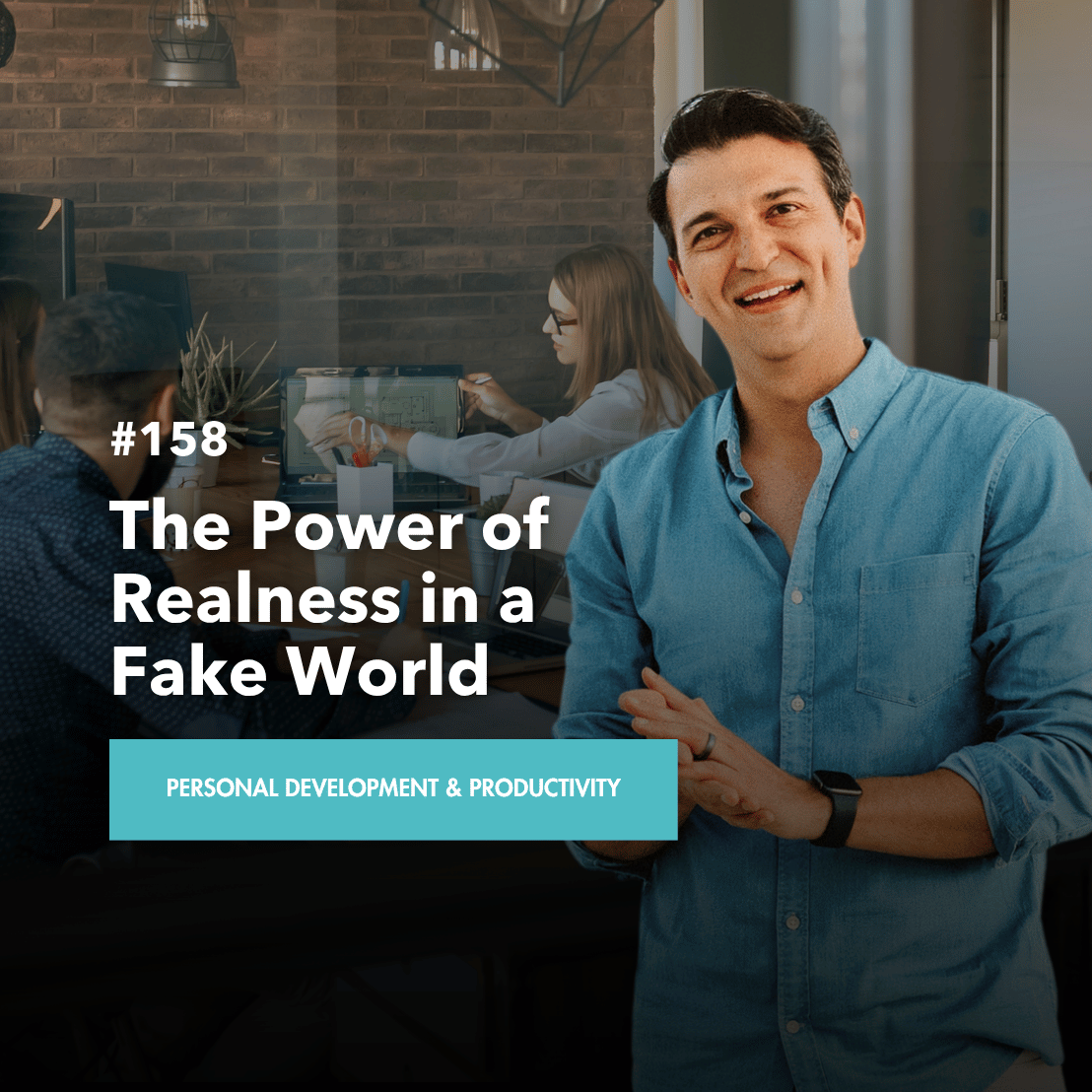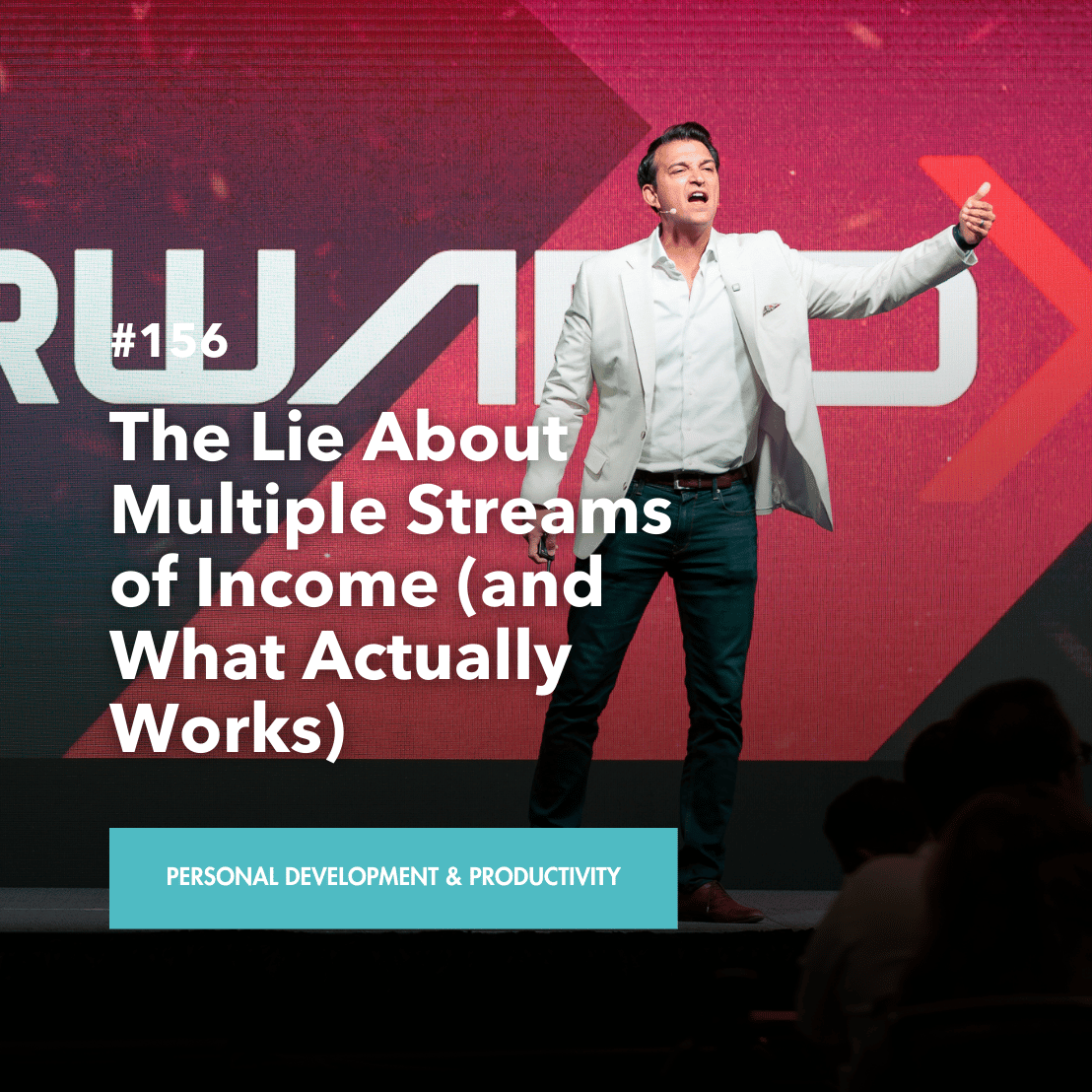What is Procrastination?
When you look at the concept of multiplying time, you ask what happens if we’re not multiplying time?
What is the obstacle or the roadblock to multiplying time?
Or if we’re not multiplying time, what is the enemy that we are all facing?
After years of studying this, we feel strongly that the enemy can be boiled down more or less to one word.
The word is procrastination.
Procrastination is the enemy of all success.
Procrastination is the most expensive, invisible cost in business today.
We use the word “invisible” because a lot of us are procrastinating in ways that we don’t even realize that it is happening.
Understanding Procrastination

There are three types of procrastination.
The first type of procrastination is the one that we all think of when we hear the word which is classic procrastination.
Classic procrastination is consciously delaying what you should be doing.
We learned about it as kids. I know I should be doing my homework and I’m deliberately putting it off.
As an adult. I know I should be paying the bills. I come home at night and there are bills on the kitchen counter. I know I need to pick them up and pay them, but I’m tired. So rather than paying the bills, I’m just going sit on the couch and zone out, watching TV.
But that type of procrastination is not the most dangerous type of procrastination because we know when we are doing it.
There is a much more dangerous type of procrastination that we identified as we started working with people one-on-one as we have now for so many years.
It’s interesting because after the Take the Stairs book came out, suddenly I was being interviewed on all these national media outlets that I, Rory, am supposed to be one of the experts on overcoming procrastination.
But I wrote that book because it was a problem that I struggled with.
It was kind of weird to be suddenly the expert on this just because I wrote a book on it when in reality, this was a real big challenge.
What happened was we invented a new term to describe this new form of procrastination, which I like because not only does it more accurately describe what I struggle with, it also sounds very academic, sophisticated, and intelligent.
Rather than calling what I add procrastination, I invented a new term.
I like to call it creative avoidance.
Creative avoidance is different because it’s unconscious.
Creative avoidance is unconsciously filling the day with menial work or trivial work.
What’s wild about creative avoidance is that you can be working long hours. You can be moving fast during the day. You can be in a lot of meetings; you can be pushing a lot of paper. You can be answering a lot of emails. You can be on a lot of conference calls.
You can be doing all of this stuff and yet when you get to the end of the day and look back on what you accomplished with that day, if you’re honest with yourself, very often you will realize that you were nothing more than busy. Just being busy.
Distraction is a dangerously deceptive sabotage tour of our goals.
Many of us lose to distraction far more than we will ever lose to a lack of skill, resources, or connections.
It is because we allow ourselves to get distracted.
You must watch out for this.
And what’s wild also about creative avoidance is that it masks itself as productivity. What we’re doing is we’re creating stuff for ourselves to do so that we can do that thing.
But really what it is, it is a defense mechanism to avoid doing the thing we know we should be doing that we don’t feel like doing
There is a third type of procrastination, which is fascinating because this type of procrastination affects all the people who you wouldn’t think to be procrastinators.
This is probably the one that’s most likely to affect all of you because it affects the chronic overachievers.
It affects the do-gooders, the check listers, and the taskmasters. It affects the leaders, the business owners, and the movers and shakers.
The word, which is another phrase that we invented, is priority dilution.
Priority dilution is fascinating because it can be conscious or unconscious.
And unlike these first two, it has nothing to do with being lazy, apathetic, or disengaged yet it has the same net result as the first two which is that we leave the office at the end of the day with our most significant priorities left incomplete.
Not because we’re lazy; not because we’re distracted per se but because we allowed our attention to shift to less important, but perhaps more urgent tasks.
This person’s life is characterized as a constant state of interruption, always falling victim to whatever is the latest and loudest.
In the absence of a clearly defined plan, we become strangely loyal to performing daily acts of trivia.
That is what happens to all of us.
This points to, in a very universal, psychological way, something that we say around Brand Builders Group all the time. It applies both to your personal brand and to your business objectives. It applies to how you spend your time.
Which is this…
When you have diluted focus, you get diluted results.
This is the problem.
Why are not more people productive?
Why are not more people winning?
Why are not more people multiplying?
Because procrastination, in its various forms, is capturing all of us.
Nobody is completely free of all of these all the time.
How about you? Do you notice procrastination in your work/life area? How are you fighting this? Let me know in the comments below.

















